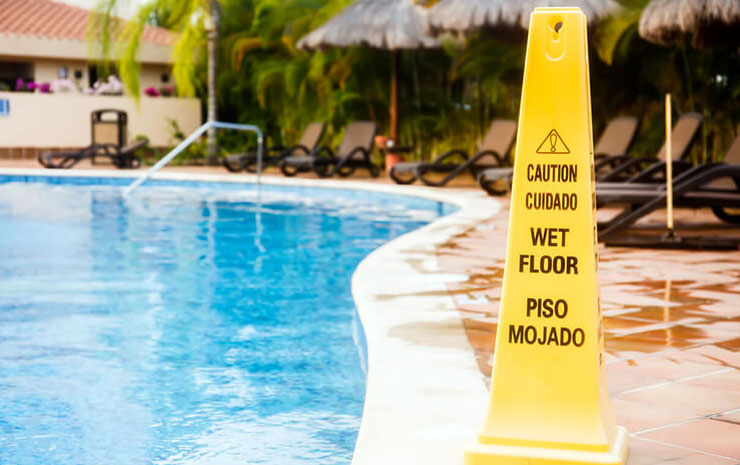
It may not be in the vacation brochures, but when you visit a Florida hotel or resort, it’s possible to suffer a serious, life-threatening injury or lose a loved one to negligence.
If you have been the victim of a hotel’s failure to warn of a known danger or failure to ensure the safety of its room, lobby, parking garage, pool, beach, or any other area of its property, you want to have a skilled and experienced personal injury attorney on your side.
Types of Hotel and Resort Injuries
Because hotels and resorts provide a “one stop shop” for visiting tourists to sleep, dine, relax, and play, the staff members and property owners have a clear mandate to ensure that their guests are protected from undue safety hazards. Whether you develop Legionnaire’s disease because of an unhygienic hot tub or have to rush a child to the emergency room after a poolside slip-and-fall, you could be entitled to compensation if negligence led to your losses.
The most common causes of hotel and resort injuries:
- Drowning and near-drowning incidents in pools and the ocean
- Shallow diving incidents
- Gym equipment malfunctions and defects
- Defective and broken furniture
- Elevator and escalator accidents
- Hot tub accidents and infections
- Foodborne illnesses
- Negligent security leading to assault and injury on or around the property
- Bed bugs and other common pest infestations
- Injuries on excursions set up by the hotel
The field of liquor liability is of increasing interest and importance in our community.
Florida’s “dram shop” statute is the state’s response to the ever-increasing problem of minors and alcoholics who seriously injure themselves or others while intoxicated. Still, Florida’s statute is one of the nation’s most restrictive for plaintiffs, particularly in a tourist-friendly state. Florida law provides that if establishments such as hotels, restaurants or bars knowingly serve minors or habitual abusers of alcohol, they may become liable for any injuries or damage resulting from that patron’s intoxication. That word “knowingly” is what makes the Florida statute so restrictive.





